Halifax Sees Growth in Startups and Increased Focus on Diversity
February 5, 2021
Clean Co. Moves from Ottawa and Announces Big Plans
Planetary Hydrogen transferred most of its operations from Ottawa to Halifax and announced that by 2035 it will be removing a gigaton of carbon from the atmosphere each year. The two-year-old venture’s system produces hydrogen, which is increasingly popular as a clean fuel. It also injects bicarbonate into oceans to make the water less acidic and so capture carbon.
The scale of the climate problem means the company needs to be capturing a gigaton (a billion metric tons) of carbon annually by 2035.
“When you look at any carbon capture system in the world, that’s the scale that you have to get to for it to have an impact,” CEO Mike Kelland told Entrevestor.
“We’re at a point right now where even if we were to meet every pledge made by every government…we would still see a rise [in the Earth’s temperature] of 2.5 to 2.8 degrees…”
The company will use electricity to split water into hydrogen and oxygen and then sell the hydrogen as fuel. The market for hydrogen is currently $150 billion-a-year and that’s expected to double by 2030.
Though many companies make hydrogen this way, Planetary Hydrogen’s process involves adding mineral salt to also create hydroxide. The hydroxide reacts with carbon dioxide in the atmosphere, capturing CO2 and making bicarbonate, an alkaline material. Bicarbonates in the ocean can capture carbon for thousands of years, and help to ease the acidity that is being caused by global warming and which threatens ocean species.
“The oceans are one of very few carbon repositories that have the scale to take the carbon out of the atmosphere and safely sequester it” said Kelland.
The company will also sell offsets for the carbon it captures and has already signed Ottawa e-commerce giant Shopify as a client. The value of offsets will increase as the price of carbon rises.
Most of the venture’s seven employees are currently en route from Ottawa. The team is collaborating with Dalhousie University and other local groups, including Innovacorp. The company is seeking an industrial space near the ocean in the Halifax area.
“One of the things that really drew us to the East Coast rather than the West Coast was the support we found here. We had huge support from Innovacorp,” said Kelland.
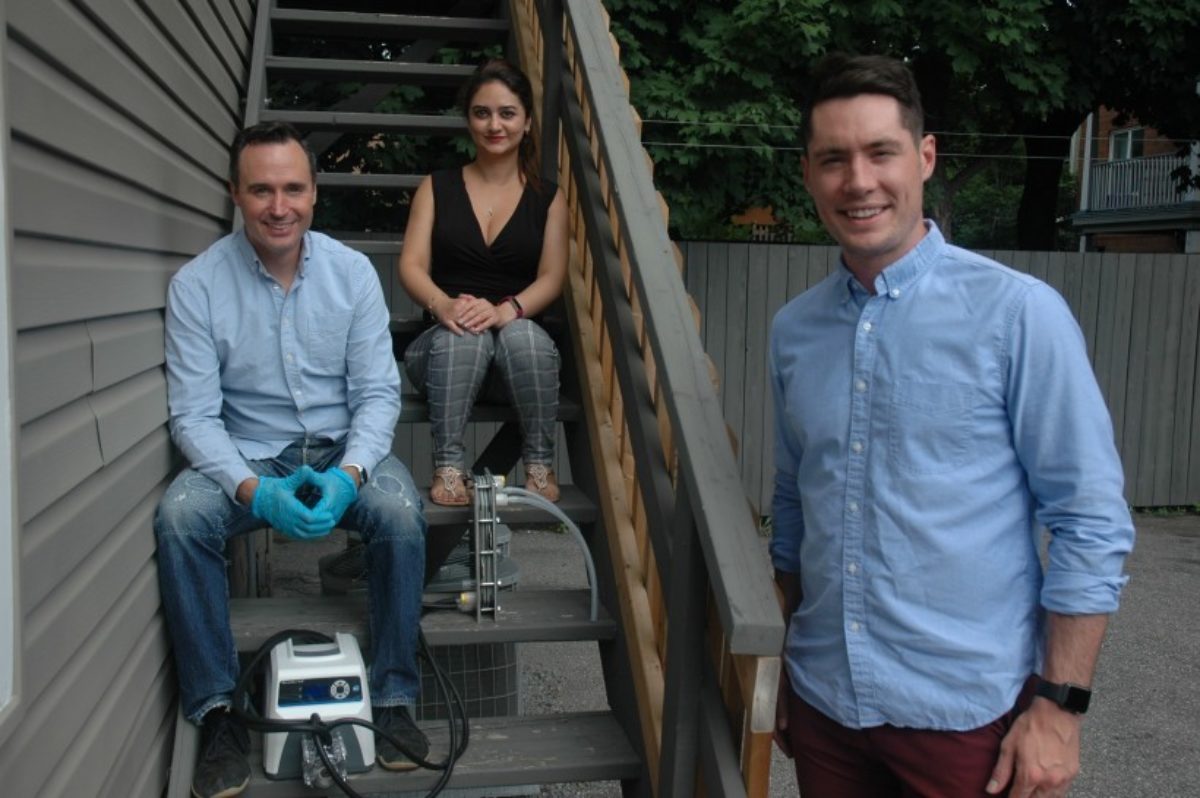
Images from Space Safeguard Right Whales
Dalhousie PhD candidate Olivia Pisano and colleagues have devised a novel, space-enabled way to track the endangered right whale.
“I stumbled across a paper from the U.K., where some scientists had started to look at whales from space. And I just thought, this is a coolest thing I've ever seen in my life. I wonder if we could do something like that in Canada,” Pisano told Dal News.
Pisano’s PhD supervisor, Boris Worm, is primary investigator for the transnational Ocean Frontier Institute that works to future-proof marine areas. Pisano aimed to create an algorithm to assess real-time satellite images and determine whale movements. Her proposal was a good fit with the Institute’s mandate.
“With climate change, the distribution of species (particularly mobile species like the right whale) is changing so rapidly, that the traditional approach of going back year after year, say to the Bay of Fundy, is just not working anymore,” said Worm.
“These whales are turning up in many new places recently. To an endangered species that's on the move, we need a different approach.”
Pisano and her colleagues have now studied more than 40,000 images in collaboration with the Department of Fisheries and Oceans.
“I have been working with aerial imagery so far, which we will use in addition to satellite imagery for this project,” she said. “I have found whales, dolphins, sharks, turtles and sunfish. It is incredible how much you can see in that imagery.”
The images have been used to train a computer algorithm to assess thousands of images and distinguish right whales from other animals, waves and ships.
The team recently received $1.1 million from Canada’s smartWhales initiative led by the Canadian Space Agency which uses satellites to detect right whales and anticipate their movements. Other partners include the British Antarctic Survey, Bigelow Laboratory for Ocean Science, Global Spatial Technology Solutions and Halifax-based DeepSense.
Sona Gets Covid Test into Europe
Sona Nanotech, a creator of rapid diagnostic tests, won regulatory approval to sell its test for COVID-19 in the European Union and the U.K. after receiving CE Mark status
The company’s shares have soared and dipped during the pandemic and rose with the news of the new approval before settling. The venture currently has a market value of around $120 million. Sona recently closed a placement of shares and warrants that raised $2.6 million in new capital. The company will use the money to conduct more clinical tests.
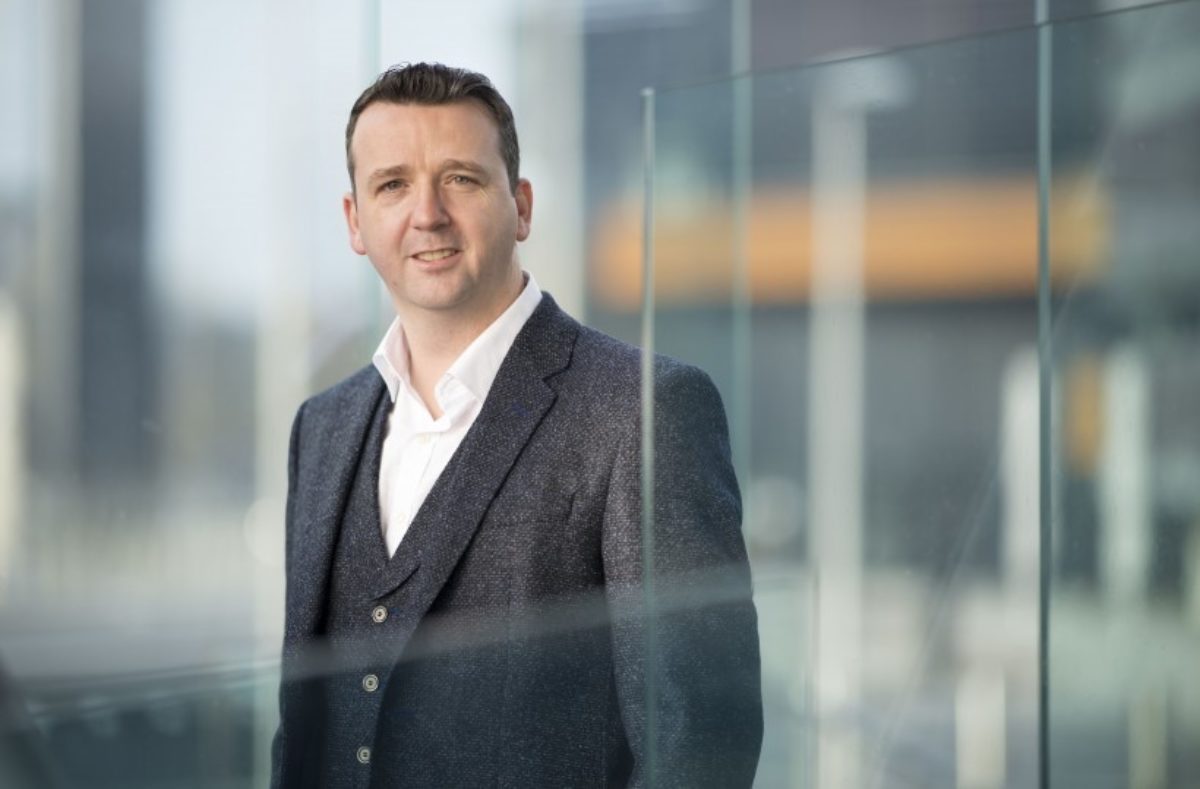
Sona Nanotech initially set out to produce gold nanorods that could be used in medical tests. When the pandemic arose, Sona and its partners began adapting its lateral flow diagnostic tests to work on COVID-19.
The venture is facing a class action lawsuit launched on behalf of shareholders who claim Sona’s statements caused the share price to decline. Sona is expected to fight the charges but has not given an official response.
Dalhousie and Tesla Deepen Relationship
Dalhousie University renewed its research partnership with Tesla and appointed two scientists to research chairs to boost the science involved in lithium-ion batteries and energy storage.
The university said the 2015 agreement between Tesla and Dal’s Jeff Dahn Research Group has been renewed and will run until at least 2026.
The researchers have conducted pioneering research into the life, power, and cost of the batteries which are needed to produce electric cars that can travel as far without a recharge as gas-powered vehicles.
Dr. Chongyin Yang was named Tesla Canada Research Chair and Dr. Michael Metzger became the Herzberg-Dahn Chair. They will work with Dahn, who is the NSERC/Tesla Canada Inc. Industrial Research Chair, as well as Canada Research Chair in Materials for Advanced Batteries.
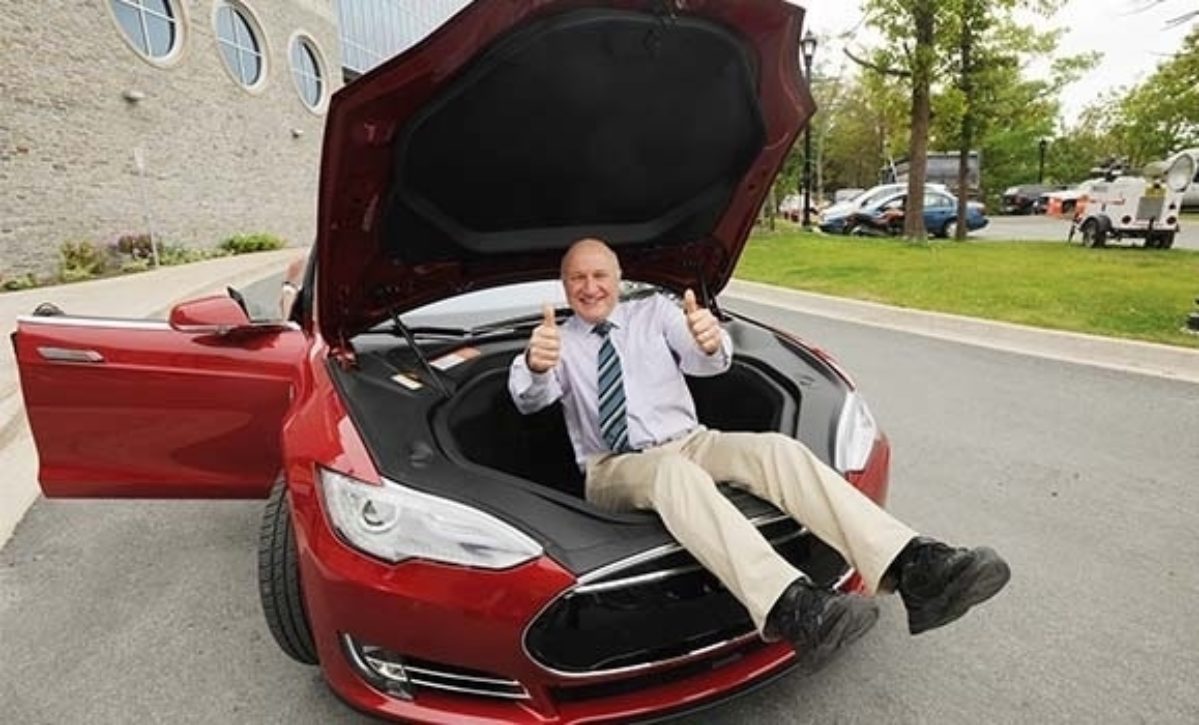
Australia's Novonix also said Dahn will become its Chief Scientific Adviser in July. In 2015, Novonix acquired a battery-testing operation that began life in Dahn's laboratory. Novonix Battery Testing Services still operates in Bedford.
Synk Purchase of Manifold Creates New Exit for MacDonald
Software company Manifold was acquired by Snyk for an undisclosed amount. Synk’s platform lets programmers embed cybersecurity functions into their development processes, while Manifold’s allows tech ventures to buy software for their computer programmers.
It’s the second time in less than ten years that a company headed by serial entrepreneur Jevon MacDonald has exited.
Manifold’s investors include Halifax venture capital firm Build Ventures, and the Manifold purchase marks the fund’s first exit. The news may help attract investors to Build’s second fund.
Manifold was founded in 2016 by a team led by MacDonald, who was previously the Co-Founder and CEO of GoInstant, which was sold in 2012 to California-based Salesforce, reportedly for more than US$70 million.
Last year, Snyk raised US$350 million in capital, valuing the venture at US$2.6 billion. Snyk has also bought Swiss venture DeepCode, a creator of real-time semantic code analysis powered by AI.
“The Manifold team will be helping accelerate the extensibility of Snyk’s platform, making it easier to build upon and automate existing developer workflows,” Manifold said on its website.
BBI and Volta Launch Boost
The Black Business Initiative along with startup hub Volta announced Boost, a new four-month program to support the region’s Black and Indigenous entrepreneurs.
Boost will launch in March and run for four months, offering entrepreneurs workshops and skills development sessions. Preference will go to applicants identifying as women and those who belong to the LGBTQIA+ community.
“We truly believe that increasing the participation of BIPOC founders in the startup ecosystem will strengthen the business community not only in our province, but globally,” Matthew James Martel, Black Business Initiative Chief Operating Officer said in a statement.
Other program partners include Ulnooweg Development Group and the Atlantic Canada Opportunities Agency.

A five-year roadmap to boost the prosperity of African Nova Scotians was also launched in Halifax. The African Nova Scotian Road to Economic Prosperity Action Plan will focus on improving education, employment and entrepreneurship in African Nova Scotian communities.
“This work is very important and long overdue,” said Irvine Carvery, co-chair of the Advisory Committee, during a virtual opening ceremony.
Nova Scotia will invest around $139,000 over two years. Partners include HRM and Halifax Partnership. Data collection will be a priority.
“There is a lack of past and present economic data and qualitative research to fully understand the historic and current human rights concerns, educational issues and the economic situation of African Nova Scotians,” the organizers said.
Oceans Sector Focuses on Resilience and Diversity
Canada’s Ocean Supercluster is seeking applicants for its Ocean Supercluster Resilience program, which will invest as much as $15 million in projects that boost the ocean economy.
The supercluster – a group based in this region that supports Canada’s ocean economy – is looking for projects that require collaboration between companies and can be completed in 30 months.
“While ocean sectors have seen significant adverse impacts this past year due to the pandemic, we have also seen incredible innovation and resiliency in ocean [industries] with close to 40 new Ocean Supercluster projects approved in 2020, most of which were approved since March,” Supercluster CEO Kendra MacDonald said in a statement.
Meanwhile, the Centre for Ocean Ventures and Entrepreneurship is working with partners on a new program that promotes oceantech industries to female high school students.
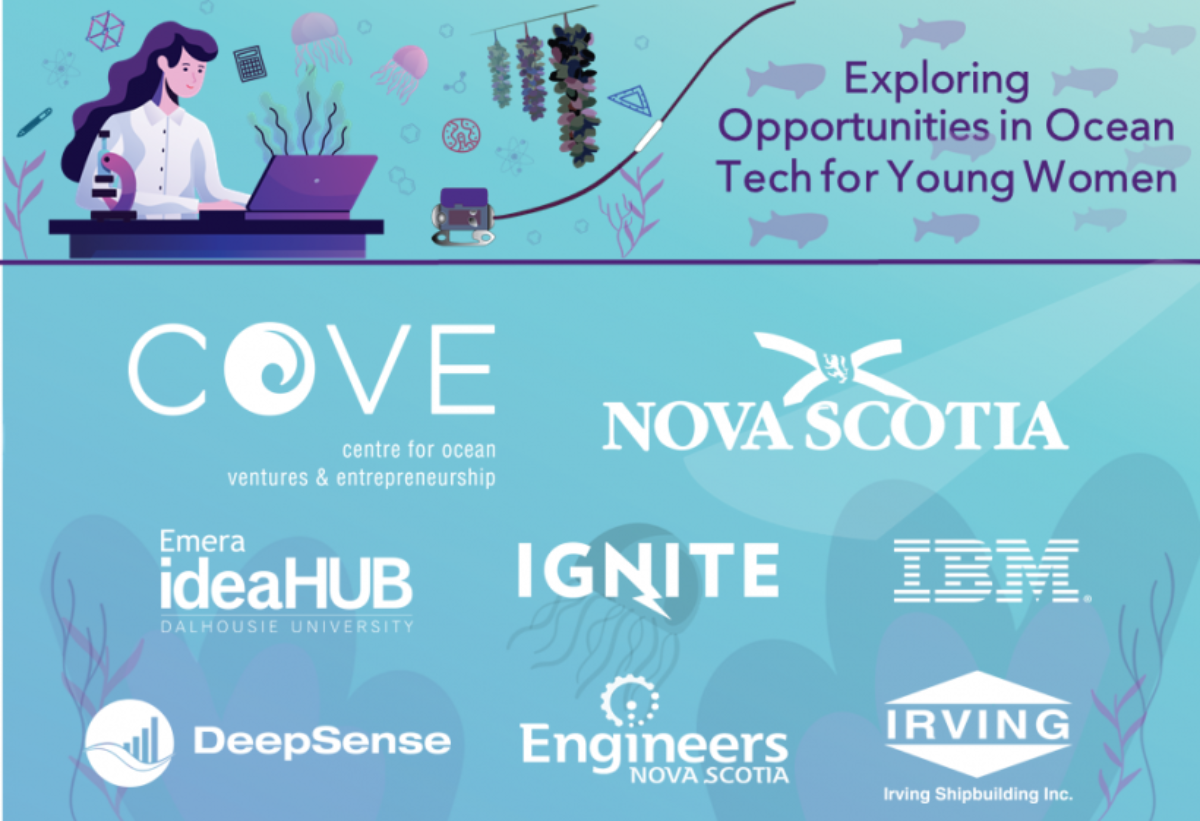
The program: Exploring Opportunities in Ocean Tech for Young Women, is being offered across the province to youth in Grades 10 to 12 and will be conducted virtually for now.
“For this program we wanted to really engage young women in the province by connecting them with other female role models and mentors who can show them that the ocean tech industry is a place where they can explore and build careers.” COVE Executive Director Sherry Scully said in a statement.
The program focuses on four oceantech sectors: aquaculture and fishing; ship and boat-building; marine observation and conservation; and marine renewable energy.
Partners include the Department of Education and Early Childhood Development; IGNITE Labs; Dalhousie University’s Emera ideaHUB, DeepSense, Engineers Nova Scotia and IBM Canada.
Outcast Foods Teams Up with Sportchek
Outcast Foods partnered with SportChek to put Outcast products in 150 SportChek stores across the country.
Outcast turns unsellable or rejected produce into sustainable, nutrient-dense foods for wholesale, retail and consumer use, extending shelf life to three years.
The partnership is the latest for Outcast Foods which has recently announced agreements with companies in the pet industry. It is also working with Sobeys to reduce food waste in its Debert, Nova Scotia distribution center and at Nova Scotia stores.
Outcast also partnered with Toronto's Greenhouse, an organic beverage venture in order to upcycle pulp byproduct from Greenhouse’s juice processing systems.
“With more uncertainty in our food supply chain now than ever, it’s critical to find ways to reduce food waste…” TJ Galiardi, Outcast Foods' Co-Founder said.
DeCell Technologies Positions Itself for Growth
DeCell Technologies, a maker of natural regenerative scaffolding for wounds, has obtained patents for its prECM decellularization technology in Canada, the U.S., and five European countries. The company also announced a regional distribution partnership with New Jersey’s Impactful Health Solutions and Pharmed Healthcare of Cairo, allowing its flagship product DermGEN to be sold in eight countries in Northern Africa and the Middle East.
The company was established eight years ago to focus on improving the treatment of chronic foot ulcers.
“One of the biproducts of COVID is that wound care patients aren’t being treated, so it only gets worse for them to the point where [it only gets attention] when people come in for amputation,” CSO Paul Gratzer told Entrevestor.
DermGEN is a natural scaffolding made from donated human skin, which is placed over ulcers to help skin cells regenerate and keep wounds clean.
There are other products that use human skin from tissue banks, but bacterial infection and rejection can be experienced by patients.
The process created by DeCell’s team and partners is called prECM, which automates the production and packaging of the scaffolding, assuring sterility and eliminating elements that can cause rejection. Its liquid-based system eradicates the need for radiation or other energy-based sterilization methods.
It has been working with RegenMed, Ontario’s top tissue bank, which is also now manufacturing DermGEN. It is also collaborating with wound care specialists.
“We’re trying to promote that we’re not just a product,” said Gratzer, who intends to raise capital late this year. “We’re developing several platforms, like our website, to be a resource for clinicians working in wound care.”
Talkatoo Vet Transcription Service Boosted in U.S.
Talkatoo, a maker of transcription software for vets, announced a partnership with Patterson Veterinary, which will see the U.S. company distributing Talkatoo products.
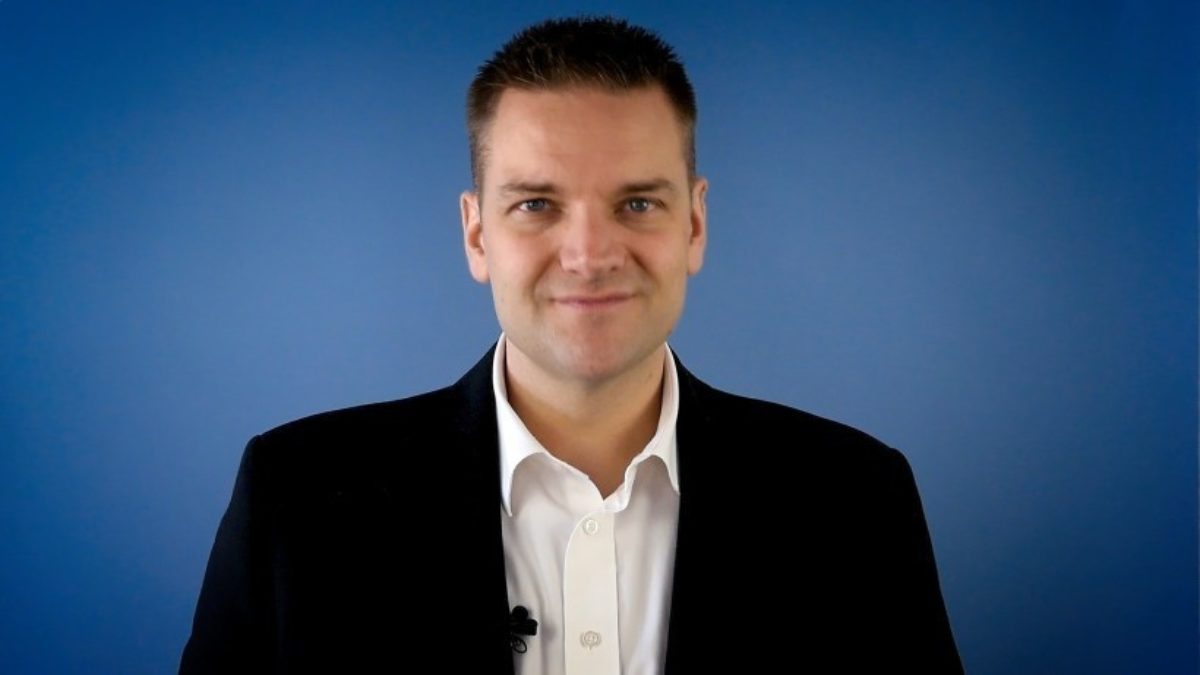
Patterson Veterinary, along with its sister company Animal Health International, constitute one of the biggest animal health companies on the continent.
Talkatoo, which last year raised $700,000 in equity funding in a round led by Concrete Ventures, makes a Software-as-a-Service voice-recognition product that allows vets to dictate notes and have them immediately and accurately transcribed.
“Partnering with Talkatoo will save customers hours of record-keeping each week, while providing peace of mind that their notes are thorough and accurate.” Patterson Veterinary Director of Technology Dan Holland said in a statement.
“Our goal is simple. We want to make the day-to-day lives of medical professionals better." Talkatoo CEO Shawn Wilkie said.
Car Cleaning Co. Raises Money and Considers Franchising
Vroom Crew, a company that sends teams to clean users’ vehicles, plans to raise capital and grow with a franchising model that will allow it to expand into other cities. The young company allows users to go online and book a Vroom Crew team to come to their home or business to service their vehicle.
The company began at the Masters of Technology, Entrepreneurship and Innovation program at Saint Mary’s University.
“When we started, we didn’t have anything other than a couple of T-shirts and Vroom Crew hats, and we went and provided our service just with the idea that people would love it,” Founder and CEO Quinton Gorman told Entrevestor, adding that Vroom has completed more than 500 service calls in HRM.
An important market for Vroom Crew is young families, too busy to clean their messy cars.
The company plans to raise capital later in 2021, with a target of $250,000, and franchising could help the company scale.
Gorman is currently going through the Propel IT accelerator. He’s also been part of SMU’s Venture Grade venture capital program.
“It’s interesting when I look back and think of all the people who have been there to support us,” the 24-year-old said. “In Atlantic Canada, that is one thing we have going for us young entrepreneurs.”
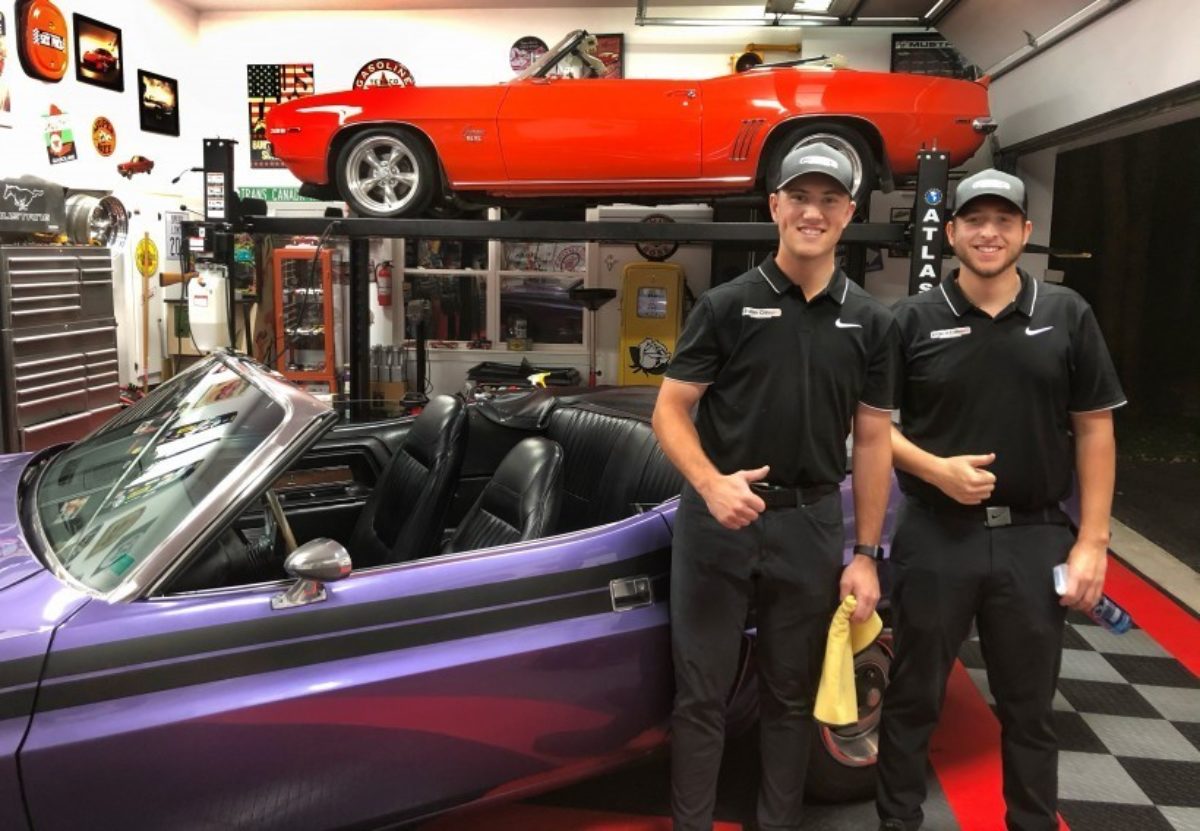
CHARBOYZ Meats Sizzle Across HRM
Chef Jason Bourgoin launched CHARBOYZ boxed local meats last May, and his meats, cooking tips and sauces are hot business during the pandemic.
Every month, Bourgoin creates a new boxed offering using a range of meats. Supporting local farmers is central. He said the region’s beef is high-quality but less than five percent of the beef eaten in the Maritimes is reared locally.
“We’re trying to take the intimidation out of meat and make people feel they’re the bosses of their own kitchen,” the chef told Entrevestor.
He’s recently added a new feature: MeatSchool, which he hosts on Facebook every Friday at 7 p.m. Atlantic time. Bourgoin is keen to get his sauces into retail stores, and the meat boxes may be scaled through franchising.
“I want our Undercover Sauce to be the new Ketchup created in the Maritimes,” he said.
LeBlanc Named Chair at Innovacorp
Innovacorp named Nicole LeBlanc its new chair of the board, choosing a venture capital fund manager who has worked in Atlantic Canada, Toronto and Europe.
LeBlanc, who is succeeding Rodney F. Burgar, has worked with the First Angel Network in Halifax and as an investment manager for BDC Capital. She joined the Innovacorp board two years ago and is behind the group’s mission to focus VC backing on companies that are aiming for billion-dollar valuations.
“Within venture capital, it’s not a business of home runs; it’s a business of grand slams,” she told Entrevestor.
“If you look at Canadian history, it’s the companies like RIM (now BlackBerry) and companies like Shopify that are the anchors in the local economy that allow the economy to grow and thrive. We can grow those companies in Atlantic Canada.”
The pandemic is creating opportunities as well as problems, she said.
“What’s really important is for companies in Atlantic Canada to have ties to investors and anchor customers based elsewhere...Having those international ties will help us to get better and stronger.”